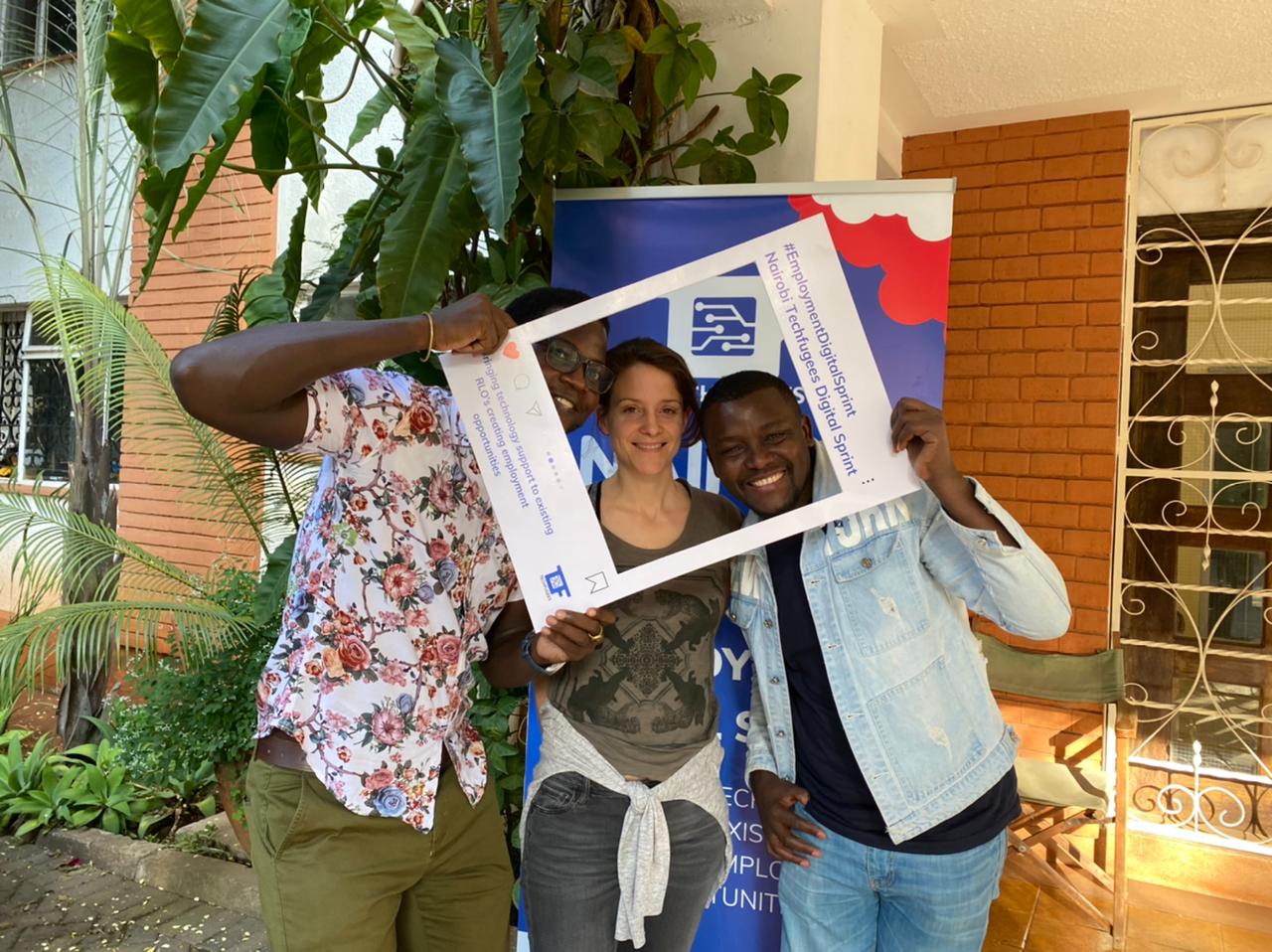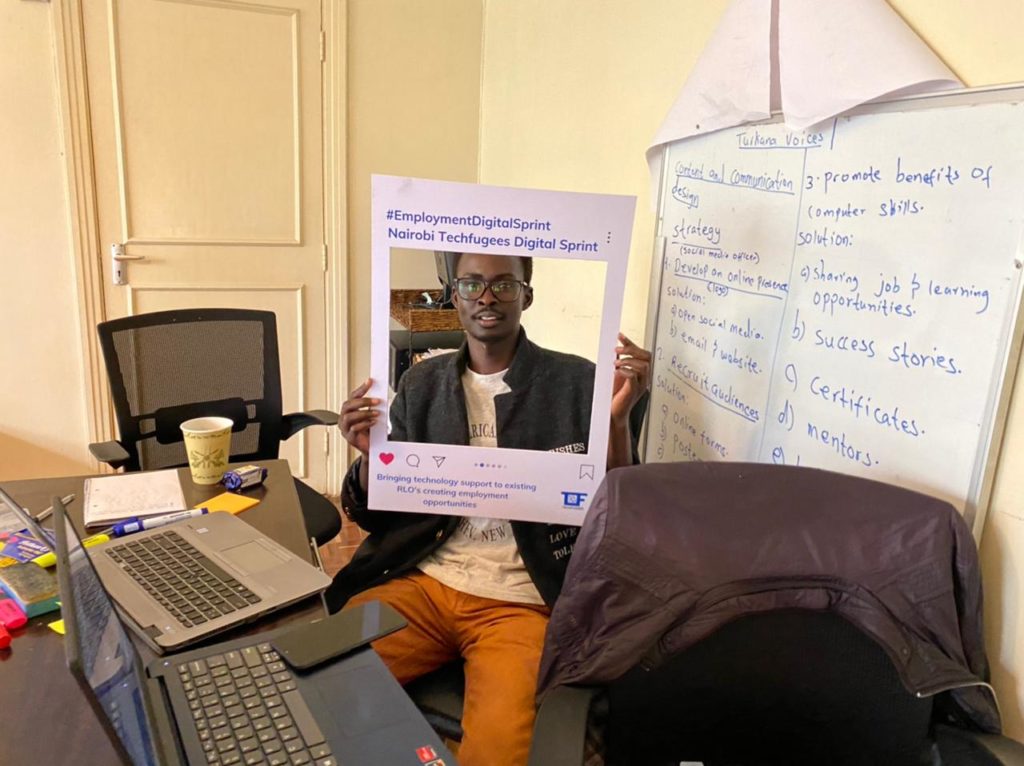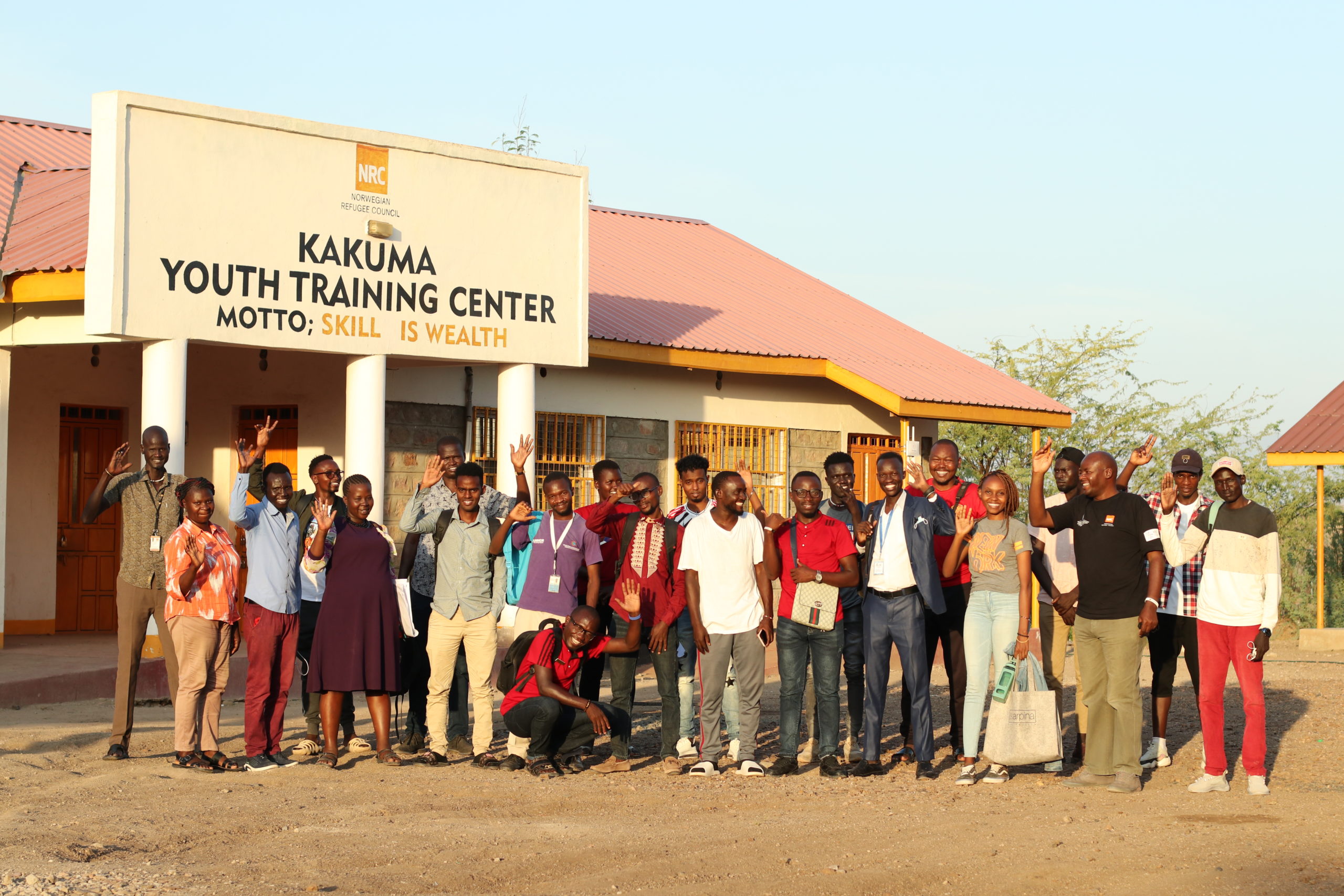On February 26th- 27th, The Techfugees’ Digital Sprint for employment took place in Nairobi, Kakuma, and Dadaab and was held at Samual hall ( Nairobi) and NRC (Kakuma & Dadaab). Techfugees Kenya hosted no less than 80 sprinters, the majority of whom live in the main camps, Kakuma, Dadaab and Nairobi.
What is the purpose of Digital Sprint 2022?
In 2020 Kenya hosted about 500 000 registered refugees and asylum seekers on its territory. 84% of them lived in camps while 16% reside in urban areas with limited access to employment and income-generating opportunities.
The Digital sprint is the first of its kind two-day event to bring tech support to existing Refugee Led Organisations (RLOs) creating employment opportunities in the digital economy. Techfugees Kenya, UNHCR Kenya, Xavier Project, NRC Dadaab, NRC Kakuma and Samuel Hall partnered, to organize this sprint to foster access to employment for refugees in Kenya and support four responsible digital projects creating tangible work opportunities with and for refugees.
The Digital Sprint was intense and fun tech working session gathering refugees and non-refugees to solve employment challenges faced by forcibly displaced persons in Kenya. We felt there was no need to reinvent new digital solutions. Some great impactful project creating income generating opportunities already exist, and oftentimes are created by displaced persons themselves. However those projects do need visibility, funding and can’t afford tech skills to scale their project to the next level. That’s what we brought during this event !
Each team who registered for the event had chosen in advance which of the guests’ projects they wanted to support on the following aspects:
- Coding
- Design
- Digital Communication
- Data analytics
The event brought teams from Nairobi, Dadaab and Kakuma both on-and-offline. It was a wide hybrid, with physical venues in each location to host the teams and provided a good working environment (Wifi, electricity, computers, design kits and intellectual social emulation) and brought the three locations online for the course of the weekend (Challenge presentation, conferences, pitches…)
Teams were formed to support four pre-selected guest organization answering the challenge: How might we address the limited employment / income generating opportunities faced by refugees? The close relationship we had with the team was a necessary step to find the right challenge, define a problem statement and come up with adequate technical specifications.
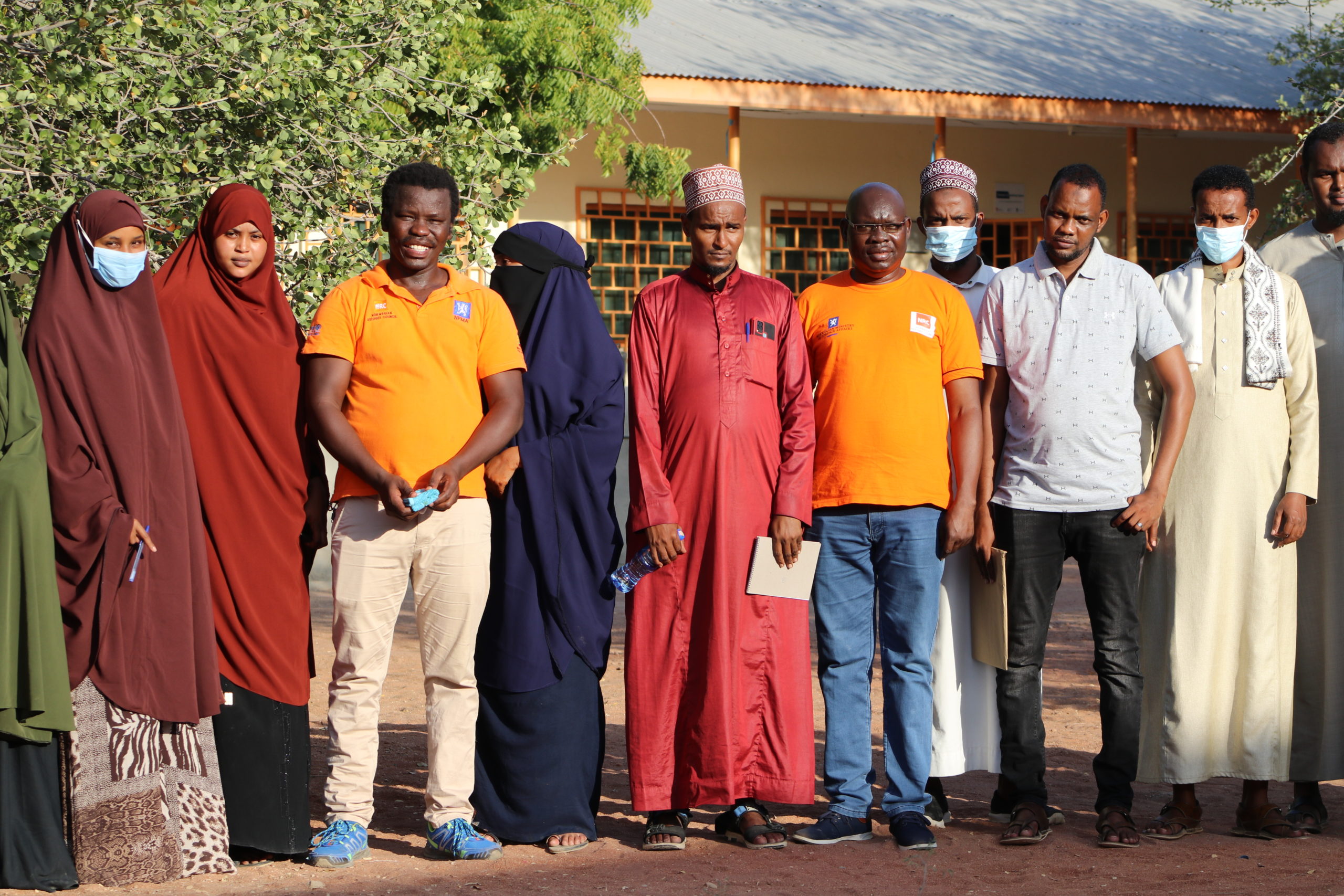
Let’s get to know those four guest project organization !
1️⃣ TURKANA VOICES:
Turkana Voices is a CBO started in 2010 and based in Turkana West, Turkana County, Kenya. They train refugees, host community members and students (especially girls in local secondary schools) basic computer skills, e.g., how to use the internet. These trainees find internships and employment and also set up businesses such as cyber cafés and T-shirt printing firms. The training, therefore, enhances the capacity of refugees, host community members and students to get jobs and/or set up their own income-generating practices.
2️⃣ REFRAME:
Refugees from various nationalities and communities often arrive at an interim destination (e.g Daadab and Kakuma) with very limited access to employment or income-generating opportunities. In most cases, they depend on international humanitarian organizations to support them.
Refugees based in the camps and settlements are often the best positioned to create social change onsite if given the means. Through education and entrepreneurship, they can directly improve the living conditions and there are many great examples illustrating this. However RLOs often either don’t have information on how to access networks to donors or speak the “same language” to attract national and international investors. As of today, most funding that would benefit refugee-led organizations goes to INGOS.
On the other hand, donors that are willing to provide support to RLOs don’t have a channel or means to reach out to, profile and vet refugee-led organizations to grant them these opportunities, as their visibility is very limited.
3️⃣ RE-EMAR:
Regarding the restrictions of movement and status…ReEmar is exploring a potential software platform to connect refugees in Kalobeyei settlement to suppliers and consumers…for products made by and for refugees in Kakuma/Kalobeyei settlement e.g bags… Kitenge…to promote their visibility ensuring scaling up. The aim of ReEmar is to empower local traders by promoting businesses to overcome movement restrictions and eventually create jobs for thousands of young refugees in Kalobeyei settlement and Kakuma refugee camp.
4️⃣ FIT FOR PURPOSE
Established in 2019, fit for purpose has a centre in kakuma which have helped more than 800 Youth to access digital skills in the field of Digital literacy, freelancing and digital entrepreneurship, Mobile App Development. They also provide training in Graphic design, social media marketing and digital entrepreneurship (ex: how can students digitally communicate with customers, how to diversify existing small capital and make a return on it?).
This enhanced the capacity of youths to get jobs, create their own jobs. The objective of the project is to break the cycle of poverty among the youths and increase job placement opportunities.
Some of their success stories and paid opportunities have been around creating logos for different brands and social media marketing for businesses.
Check the problem statement : https://bit.ly/sprintagenda

Digital Sprint Outcomes:
Almost 80 sprinters took part in this competition and 20 volunteers and members of the Kenyan tech and humanitarian worlds attended the opening and closing ceremonies. Some of the developers and designers came from other countries, other regions, other realities and we are truly happy that they could travel and enjoy this experience.
4 guest projects organizations and sponsor representatives – May Joy Namu (REFRAME), Samuel Binja (RE-EMAR), Ebengho Honore (FIT FOR PURPOSE), David Locham (TURKANA VOICES) and Saboor Atrafi (UNHCR Kenya) – were gathered together to hear the pitches of the 12 participating teams.
Our sponsors and partners: UNHCR Kenya, NRC Dadaab & Kakuma and Samuel Hall were crucial in supporting the Sprint. They contributed by giving their time, space to make this creative gathering happen. We would like to thank everyone “heroes” who were part of this event.
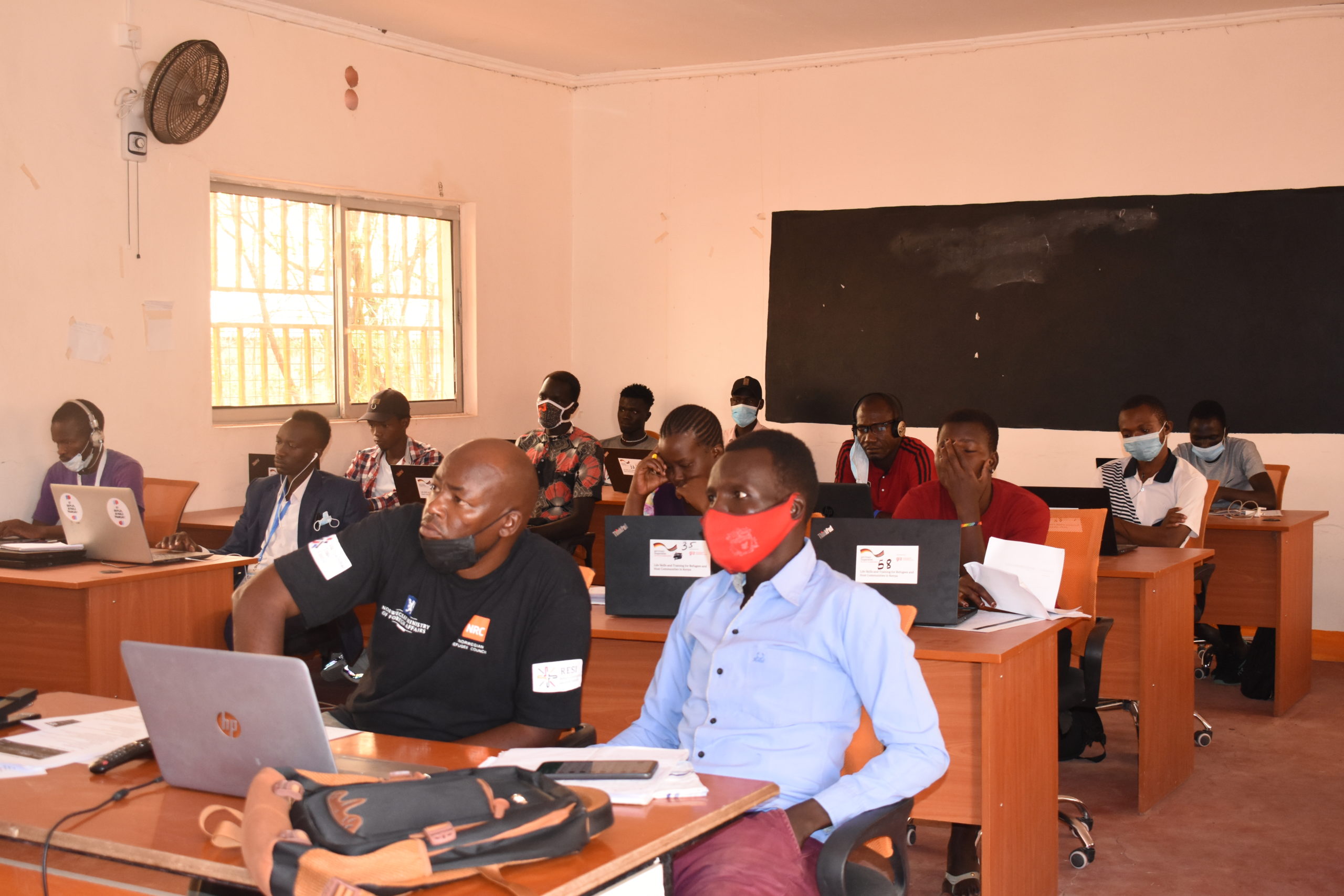
Day1
We started the day at each site nice and early at 8am with some breakfast and getting to know each other. Most participants arrived at the Nairobi site around 9am and they had traveled from far and wide across the capital and in Kakuma and Dadaab we had participants arrive and settle into the computer labs. The diversity of the attendees was the most unexpected, from students at university looking to share and learn more skills, to a lady from the local market wanting to help with her 20 years experience selling in Kenya and providing essential knowledge for the e-commerce vertical. Once we had all settled in we had a number of our partners give talks which were streamed to each of the Sprint sites to help frame why we were here and why we were focusing on refugee employment and skills.
The event kickstarted with an introductory conference to explain the context of Digital Employment for Refugees in Kenya. Ms Felicia Mandy Owiusu, from the UNHCR Kenya Livelihood department explained why they sponsored this event. Then, Joe Lemaron from the International Labor organization who talked about the conclusion of their last research Gig economy and the world of work: the role of digital platforms (Sept. 2021)
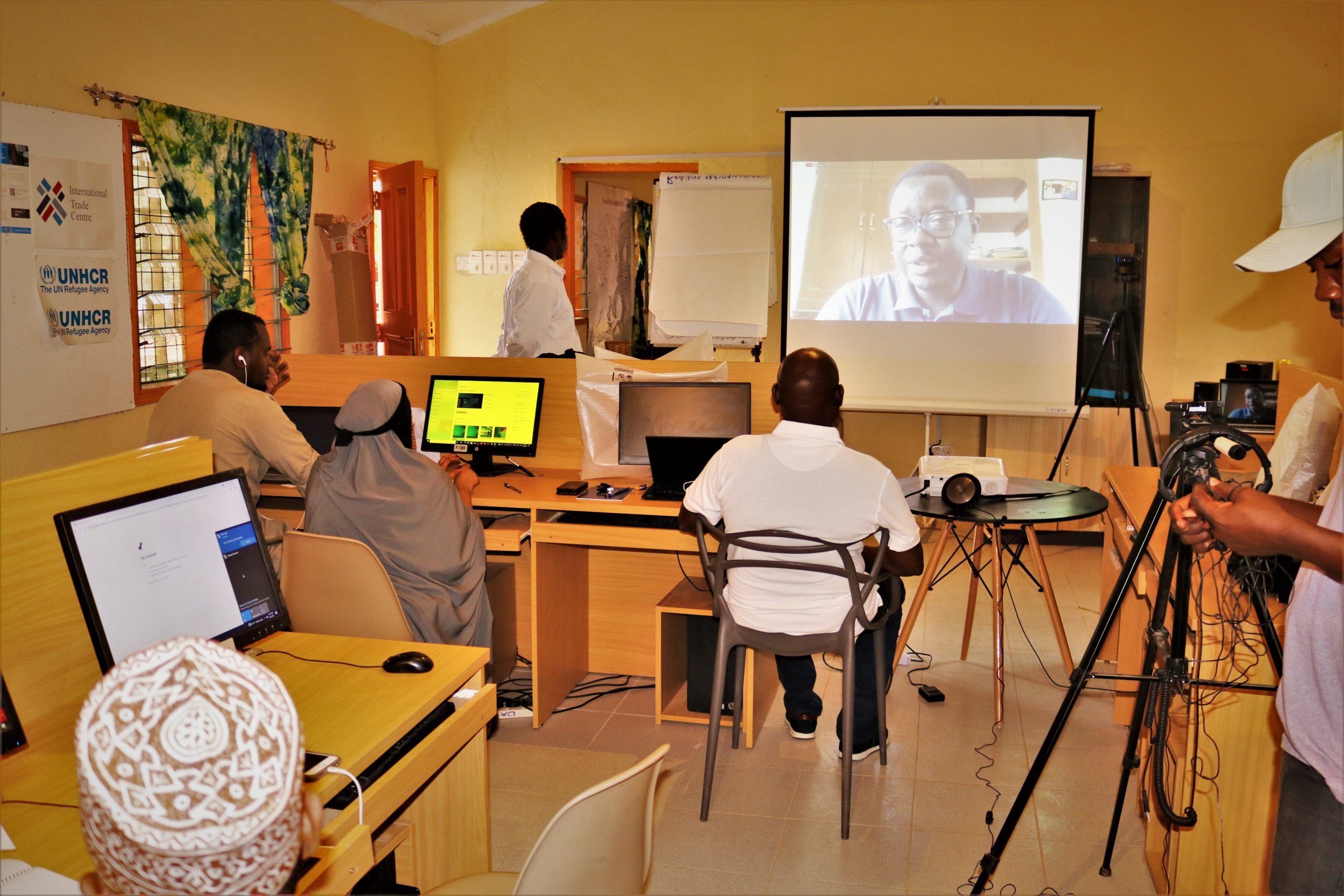
The challenges were then presented by the organizations, Turkana Voices, ReFrame, Fit for Purpose and Re-Emar which cut across 3 verticals; Entrepreneurship, Remote work and E-commerce. The participants then chose their groups and began with introductions, setting how they would work together and make decisions and then the brainstorming began!
The groups worked until lunch where we had a quick break and great talks from mentors across the globe who helped the groups think a bit more about the reality of their solutions. They could ask questions and get guidance on how to ensure their solution was viable. Mark Kwami from Made 51, helped the ReAmar group to think about logistics stating that “If there is someone already doing this weel, partner with them, don’t reinvent the wheel.” We also had Mohamed Anis from StepUp.One, who warned us not to do too many things at once, “Do one thing well and consistently.”.
The groups worked throughout the afternoon and into the evening where we checked out at 7pm with some quick pitches from each of the groups to get some instant feedback to embed for Day 2.
In Nairobi we had attendees from across the capital who arrived with an array of skills and experience. They all wanted to be part of something bigger than themselves and to learn something new, especially about the refugee situation in Kenya.
Our volunteers helped to put the groups together based on experience, knowledge and interest. We then broke off to start getting to know our groups through 3 questions, Who am I?, What skills am I bringing? and Why am I interested in this Digital Sprint?. We then worked on some core team values and how we would make decisions so there is harmony at all times in the groups. The brainstorming then began and we saw people reading, watching YouTube tutorials and talking through some ideas that they already had. The energy in the room was electric and it helped power us through the day.
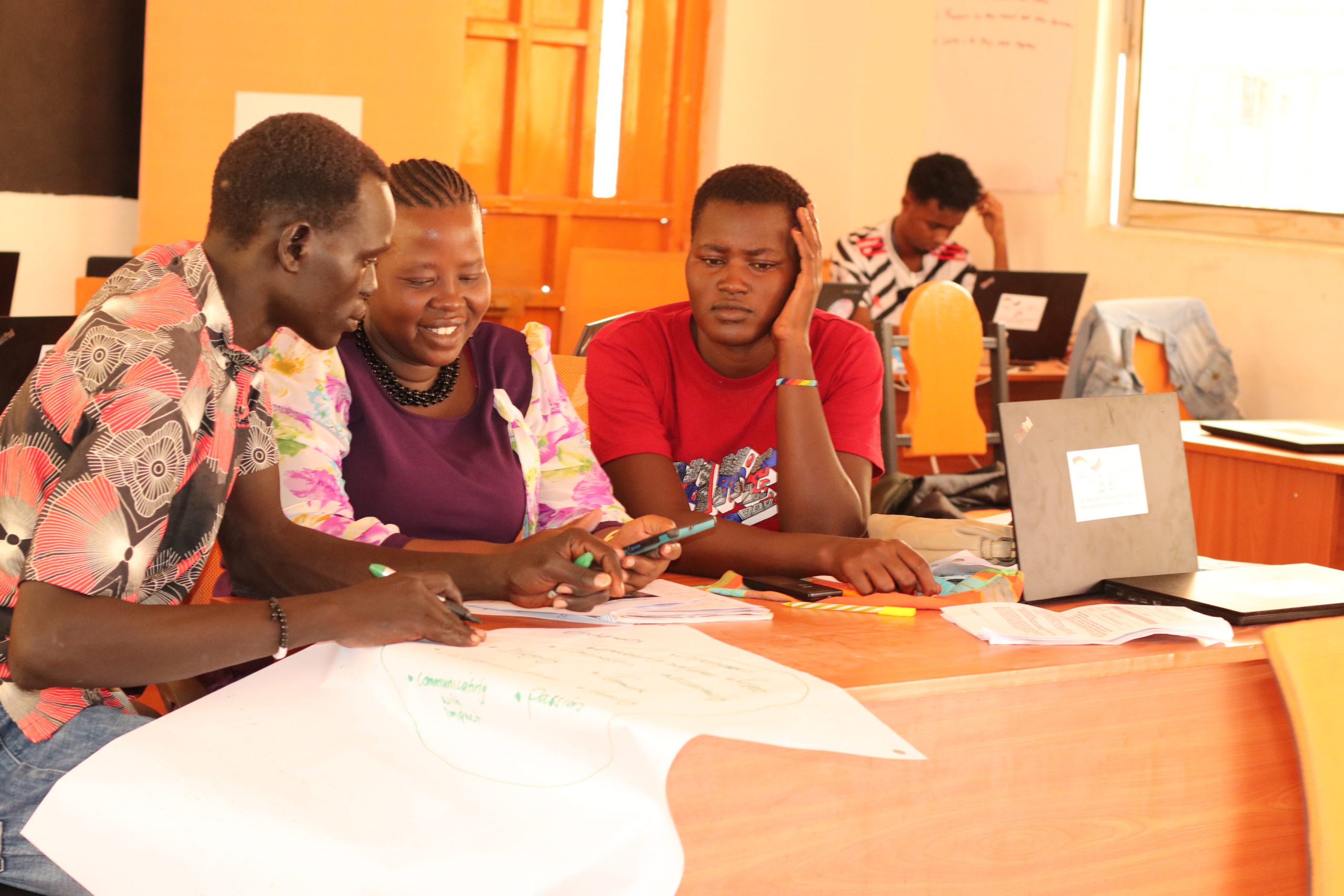
At lunch we all got to know each other more and talked about the refugee situations happening across the globe and how any solution created over the weekend could actually be scaled to other places in the world. The dedication to the projects was so inspiring to see.
We finished the day with each group giving a 3 minute pitch (carefully timed by Devika, one of our volunteers!) on what they had come up with so far and then receive some quick fire feedback to think about for Day 2.
Day 2
To continue with the success we started our second day with a brilliant demonstration of Google Sites by one of the participants who believed that sharing that knowledge would help each group create a sample of their product on a website, helping to make it look more professional and easier for the partner organizations to visualize what the solution could look like. Devika, a TechFugees volunteer, then gave an engaging tutorial on the Customer Journey to help the groups think about how their solution solves a problem for their target audience. We all learned that it is important to think about how the customer thinks and feels at each part of the journey to ensure the solution is easy and something they would want to ease their life, not make it harder.
Each site worked throughout the day with mentors coming online to help guide them as they started working on their final 5 min pitches. The final pitches began across the sites in the afternoon using Zoom so we could all be part of each site’s pitches and provide questions to dig deeper into their thought processes.
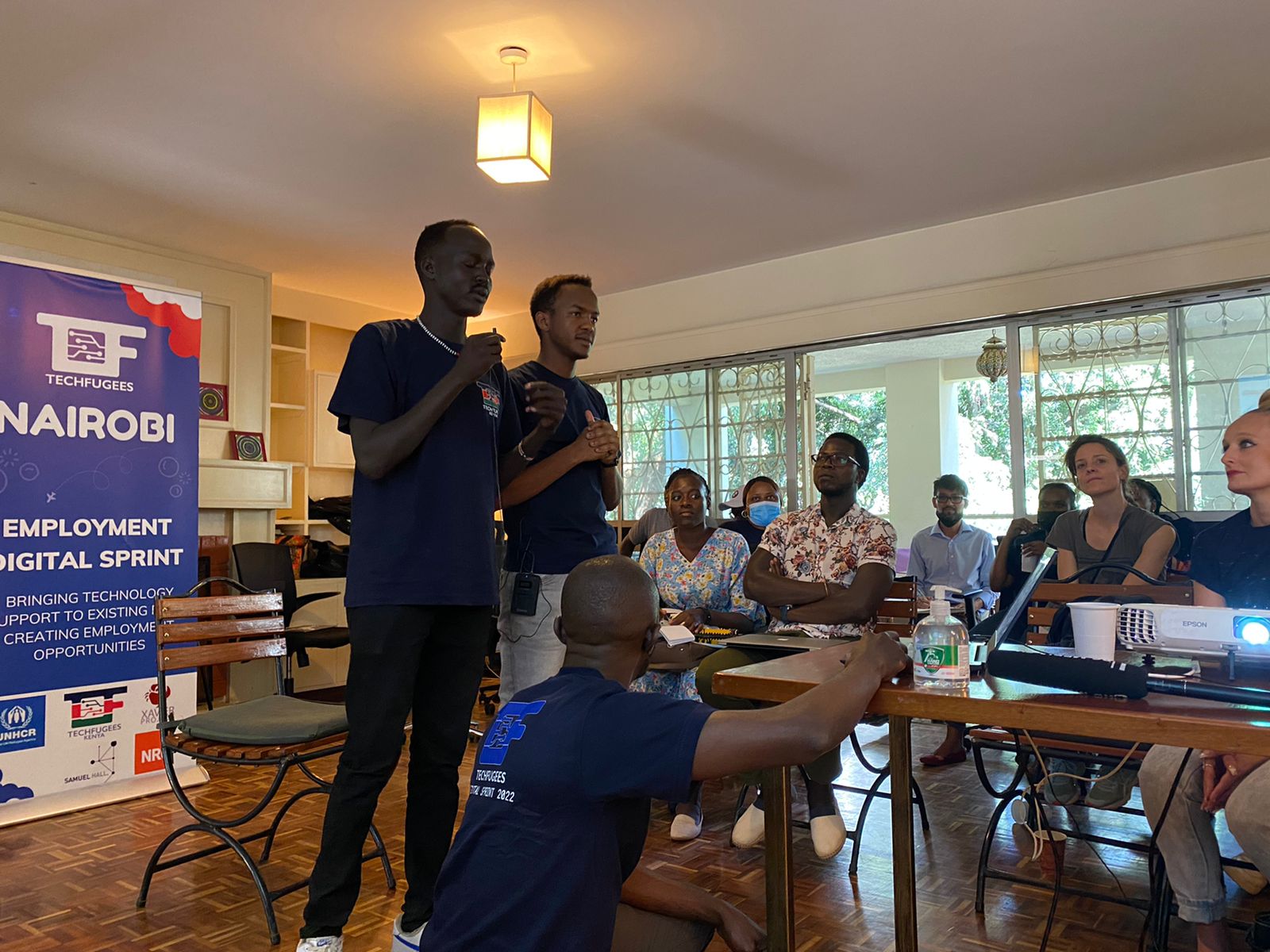
Once the pitches ended our partners UNHCR, Samuel Hall and Xavier Project gave some feedback and some closing remarks to help thank each of the participants who had given up their weekends to work on helping refugees. The projects will then be given to the project organisations to decide which solution they want to continue working on and then they can ask if the participants would like to continue helping them to produce the solution to a final product.
Participants started arriving around 9am and we dug into some breakfast as we shared some reflections from Day 1. As we listened to the tutorials we could see participants taking notes and then going back to their groups to start planning their websites and customer journeys.
We had a number of mentors guide the groups virtually as they began preparing their final pitches. There was a lot of advice around keeping it to the point and keeping the energy high throughout so the people listening would also start to feel the excitement of the solution. Gemma, a TechFugees volunteer, guided groups with a quick structure for the pitches; what is the problem, how are you solving it, what is the customer journey of using it and what are the next steps.
We began sitting down around 3pm in front of the large screen where we could see Kakuma and Dadaab and feel as if we were one group. The pitches began and we were in awe of what was created in less than 2 days! once the pitches ended and the final remarks had ended participants received their T Shirts and stickers and the TechFugees team received feedback on how to make the next event better. The team understands there is a lot to work on to make us better, but we are keen to improve so we can continue to support refugees in the best way possible.
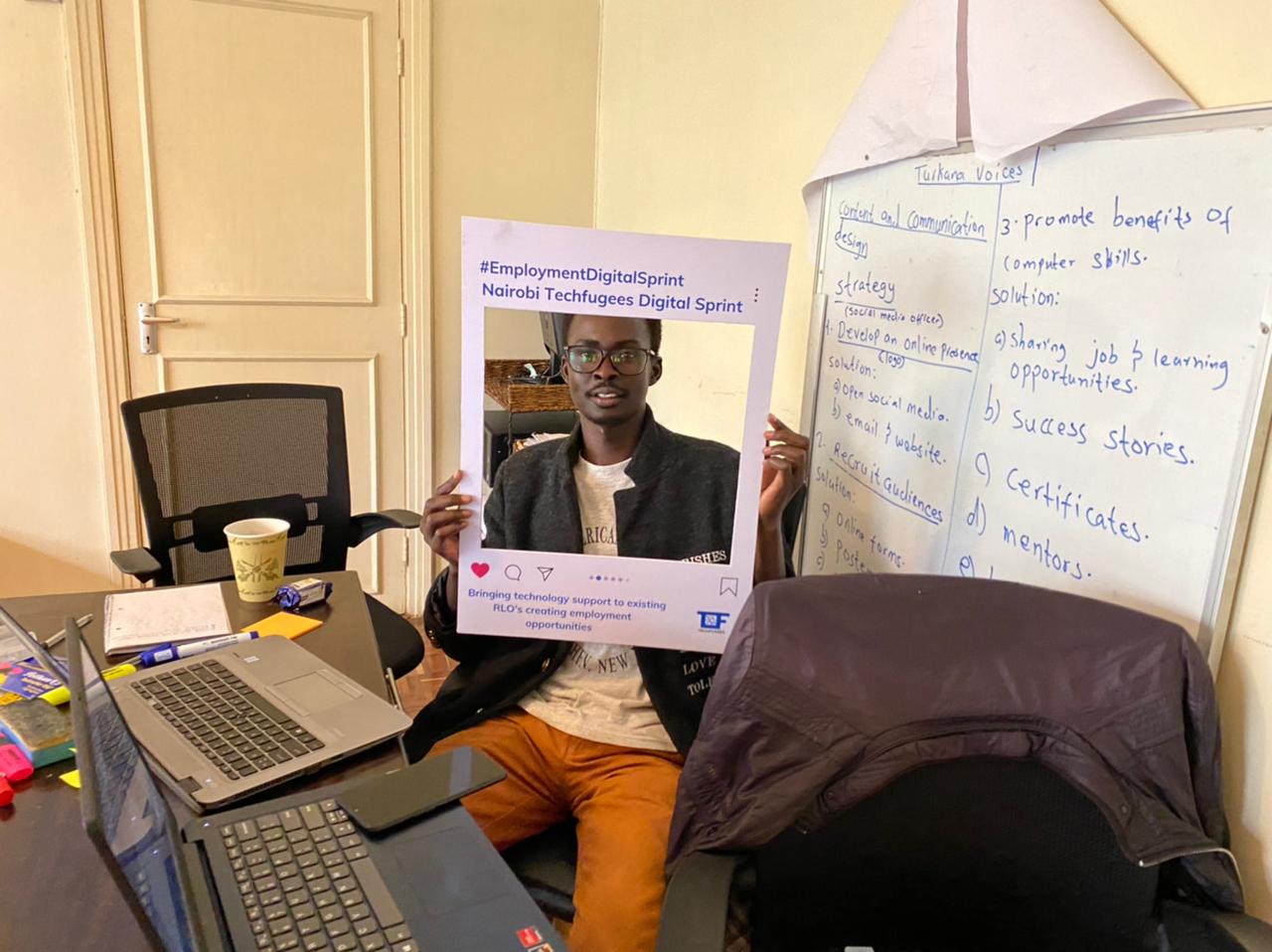
We also had fun, delicious lunch, and breaks (for the ones who wanted to 😋)!
Testimonials:

Bashir Nasir:
It was a very promising event and I look forward to the implementation of the project by supporting the sprinter group. Thank you Techfugees and other donor partners.

Ebengo Honore Hondfg’oa: #RemoteFugees, the powerful solution to #RefugeesUnemployment. Join your hands #Fit-for-Purpose and unblock refugees unemployment worldwide.
![]()
Ali Ibl:
Many of us friends, for me personally, have got 2 jobs and I am waiting for two more meetings with potential clients this Monday who are likely to give me two or four more jobs.
Conclusion & next steps in the future!
The networking opportunities generated by the event and diversity of the participants is one of the most important outcomes, in addition to giving a space and time for the sprinters to apply their digital skills on concrete social impact projects. However, that’s not enough ! Organizing such a hybrid event takes time and we wanted to make sure the impact goes beyond the two days.
- All the guest projects and 10 participants elected at the computers’ lottery will receive a computer secured from our partner Close The Gap;
- All the teams received an individual detailed feedback with contact information from our partner’s network enabling them to continue their project if willing to;
- The 4 guest projects were given all material created by the teams during the sprint (logos, visual identity, research reports, prototypes…) and got introduced to the Acumen acceleration program;
The impact of the sprint in terms of job creation will be followed up at M+3, M+6 and Y+1 by Techfugees Kenya crew; So stay tuned !
Thank you to all our partners, (UNHCR, NRC, Samuel Hall and Xavier project), our Keynote speakers, mentors, all participants for attending our first employment digital sprint and our own Techfugees Kenya team; John Monychirin Madong, Abri Yusuf, Aisha Fadallala, Gemma May, Dominic Kimathi, Devika Singh, Havi Murungi and Aya Ragheb and Chapter Co-leads ; Philomena Mwangi, Mary Munyoki,
Don’t miss any update from Techfugees Kenya! Follow @TechfugeesK on Facebook & Twitter 👋
Email us; Kenya@techfugees.com
Wanna get involved with our local chapter in Kenya? Volunteer your skills!
